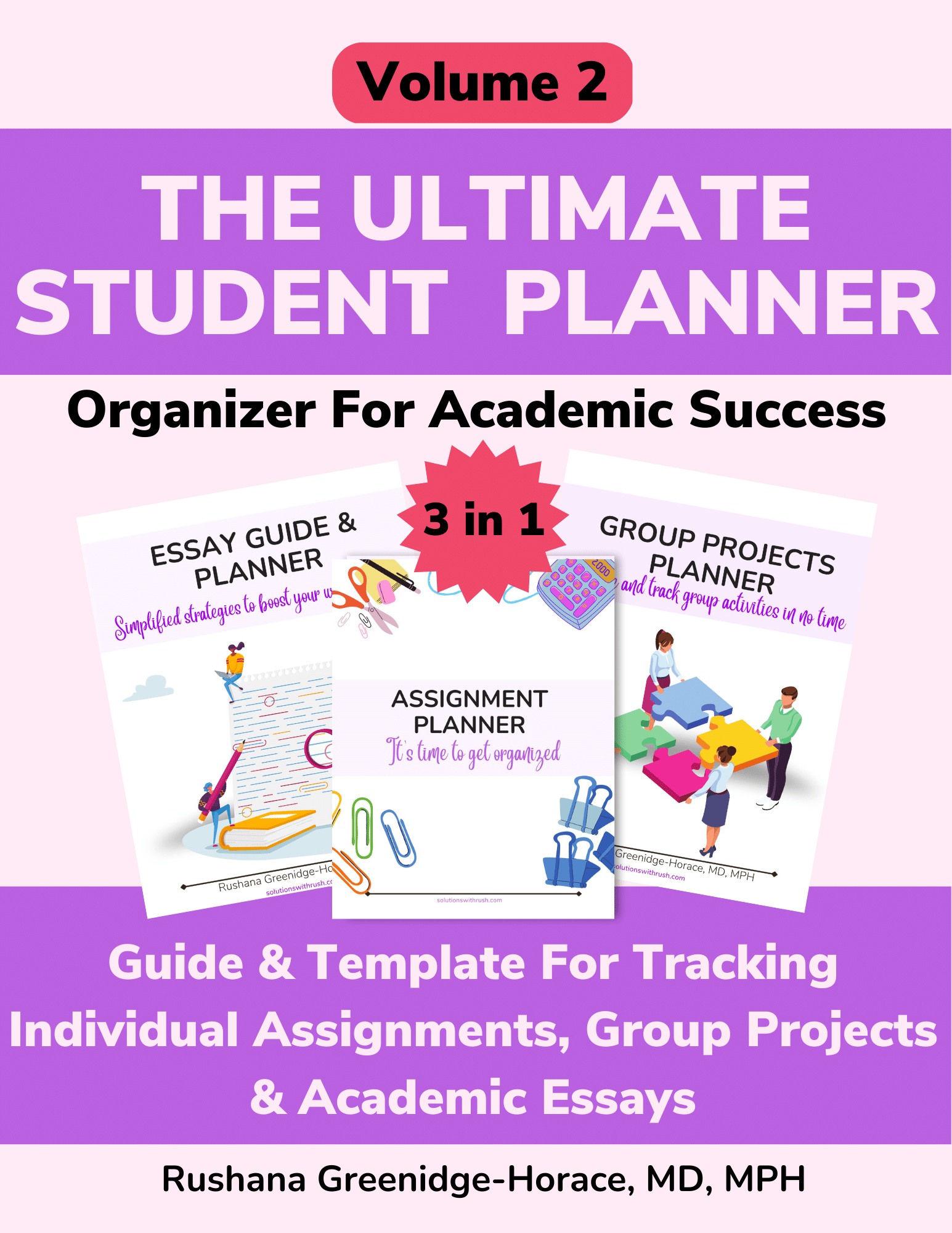

It can be frustrating to feel like you’re always struggling to keep up academically. Unfortunately, it’s even worse when you feel as if you’re the only one having trouble with the material. Let’s face it, being a slow learner is not your fault-but it is your problem.
But don’t worry – there are some practical study tips for slow learners that can help. Read on for more information about how these tips can make a real difference in your life.

"Never discourage anyone who makes continual progress, no matter how slow." - Sabatha Cokotho
A slow learner is someone who learns at a slower pace than the average person. Several factors may contribute to slow learning including poverty, parental problems, cultural issues and unfavorable school conditions.

The Ultimate Student Planner can help!
This 3 in 1 planner includes a guide to writing essays, an assignment planner, and a group project planner–all designed to help you get and stay organized.
Don’t forget to check out Volume 1 & 3 as well.

"Some quit due to slow progress. Never grasping the fact that. Slow progress is progress." - Jeff Olson
Many students learn better when they are having fun. As such, instead of learning biology in a dark lecture room, consider going to the park or an art museum.
Not only will this be more enjoyable but you’ll be likely to retain much more information.
It’s important to maximize your strengths, particularly if you are a slow learner. Start by discovering your specific learning skills.
For instance, if you’re a visual learner, like 70 % of the population, you’d greatly benefit from learning materials that include images and diagrams.
Your spatial learning style might be well suited to mastering maps and 3D models.
Plus, pictures are worth a thousand words. So, if you need to learn about something new, try finding images related to it on the internet or in textbooks, or draw your own. This will help you make sense of what you’re learning.
If you’re a slow learner, solve a problem using an example before attempting the general case.
Show that you understand how it works and then, if possible, adapt it to some other examples.
If you find it difficult to remember names and dates, try to use them later on in the day.
In fact, it’s harder to recall information at a moment’s notice than it is to remind yourself of it.
Also, try associating the names and dates with something you already know or using them in a song or rhyme.
Underlining and highlighting key sentences as you read can help you remember them later when you are trying to recall the text.
Making diagrams of how different parts relate to each other can help you understand complex systems and procedures better.
Actually, mind maps will force you to summarize the information, so that only the important points remain. As such, it is also a good practice for revising at exam time.
If you’re finding it difficult to grasp the material, try changing your approach.
Ask yourself, “What would I find easy to understand here?” Perhaps this will help you find an alternative way of looking at it.

"All students can learn and succeed, but not on the same day in the same way." - William G Spady
If you struggle with slow learning, you can use memories of past experiences or events to help you remember information.
For example, attach a word to its relative position in the alphabet (A = 1, B = 2, etc.), as this is a method that can help you recall long lists of information.
If you find yourself struggling to understand something, don’t be afraid to ask questions.
Asking questions may be difficult particularly if you’re timid, but it is the best way to clarify what you’ve been taught. Plus, it can do a world of good for your building your confidence.
Mnemonics are memory tricks to help you remember material by associating it with something else, for example acronyms or visual clues.
Use these whenever you can – they will make your life much easier.
It can be hard to remember what you’ve studied if it doesn’t sink in and make sense when you try using it in context.
So, start by changing the way you look at things – if you’re learning about different geometric shapes for example, play with some cardboard and cut out a few.
Drawing them will help you to visualize the shapes and see their differences.
Grouping information means organizing things together so they make sense as a whole, rather than as separate pieces of data.
For instance, if you’re learning about cells in biology, it might be easier to learn them by type (red blood cells, platelets etc.) first than by function (carrying oxygen, clotting etc.).
People learn better if they explain something to others rather than just reading about it in text.
This is because explaining to others improves your memory and helps you understand the subject in more depth. If you can’t find anyone, you could even teach your pet.
Individualized attention can be crucial for some students particularly those who struggle with distractions and need complete silence to focus. As such, they might require a tutor to get the most out of a study session.
Remembering new information takes time and effort, particularly if you are a slow learner.
Give yourself enough time to learn something properly because rushing things can mean you don’t remember as much as you could have, even if it feels like it’s taking forever.
That doesn’t mean you can’t reward yourself along the way though – a little celebration now and then can help your motivation.
Setting yourself goals can help you to be more productive and give you the motivation to push on until the end.
As such, you could set weekly or even daily goals for your revision timetable to improve slow learning.
This will encourage you to work steadily towards them every day, which means you anticipate learning and are less likely to develop bad habits of procrastination.
However, be careful not to get frustrated if you don’t meet your targets. Realize that you may need more time, guidance and attention than others. So, avoid competition, comparisons and labeling.

"Remenmber, success is a journey not a destination. Have faith in your ability. You will do just fine." - Bruce Lee
While some persons who are slow learners may remain delayed throughout life, with the right guidance and support, slow learners can achieve moderate academic success.
In fact, with early detection and adaptation, slower learners lead normal professional, personal and social lives as adults.
It has even been shown that the human brain has the ability to rewire itself as we get older – so if your learning style was not suited to formal education, it may be time to take a new approach.
If you are not sure what this might be, there is plenty of information online about alternative learning strategies and other options for adult learners.
Most importantly, remember that you can succeed if you try – and don’t let anybody tell you otherwise!
The study tips for slow learners may not always be what you think they should be.
However, they are effective. If these tips sound like something that can be of benefit to you, then I encourage you to give them a try. It’s time to start learning at your full potential!
What would you add? Let me know in the comments below.